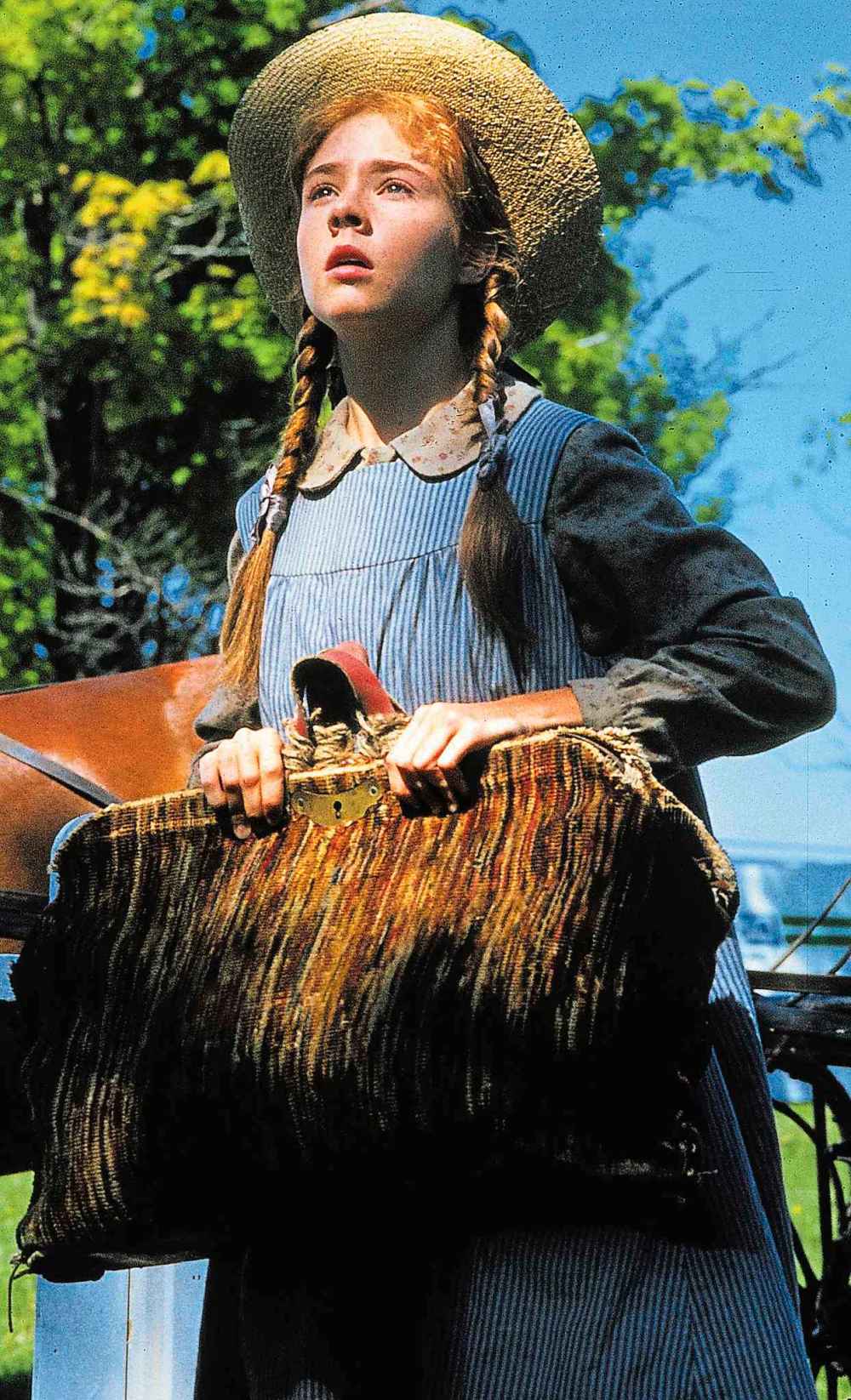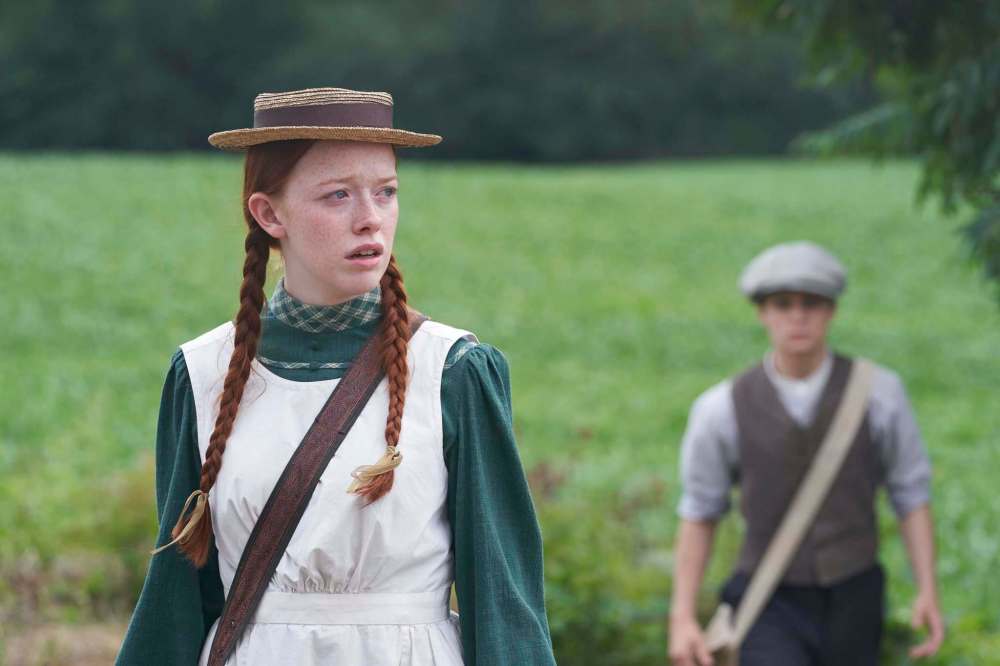Opportunity missed with Anne With an E Netflix-CBC partnership meant more exposure for Canadian stories
Read this article for free:
or
Already have an account? Log in here »
To continue reading, please subscribe:
Monthly Digital Subscription
$0 for the first 4 weeks*
- Enjoy unlimited reading on winnipegfreepress.com
- Read the E-Edition, our digital replica newspaper
- Access News Break, our award-winning app
- Play interactive puzzles
*No charge for 4 weeks then price increases to the regular rate of $19.00 plus GST every four weeks. Offer available to new and qualified returning subscribers only. Cancel any time.
Monthly Digital Subscription
$4.75/week*
- Enjoy unlimited reading on winnipegfreepress.com
- Read the E-Edition, our digital replica newspaper
- Access News Break, our award-winning app
- Play interactive puzzles
*Billed as $19 plus GST every four weeks. Cancel any time.
To continue reading, please subscribe:
Add Free Press access to your Brandon Sun subscription for only an additional
$1 for the first 4 weeks*
*Your next subscription payment will increase by $1.00 and you will be charged $16.99 plus GST for four weeks. After four weeks, your payment will increase to $23.99 plus GST every four weeks.
Read unlimited articles for free today:
or
Already have an account? Log in here »
Hey there, time traveller!
This article was published 02/12/2019 (2204 days ago), so information in it may no longer be current.
It’s not every day a 111-year-old literary character trends on Twitter.
Last week, it was announced that the latest season of Anne with an E, Moira Walley-Beckett’s adaptation of Lucy Maud Montgomery’s classic Anne of Green Gables, would be its last. A co-production between CBC and Netflix, Anne with an E’s third and final season just wrapped on CBC and will arrive on Netflix on Jan. 3.
It’s always a bummer when your favourite show gets the axe, but in this case, fans mobilized, tweeting their displeasure at #SaveAnneWithAnE and #RenewAnneWithAnE.
Maybe it’s the self-deprecating Canadian in me, but I initially found the outcry about the show’s cancellation, well, surprising. Not because it isn’t a good show — it is — but because it seems like an unlikely candidate to draw such an adoring, vocal fanbase. Strip away the style and you’re left with a quintessentially Canadian — nay, quintessentially CBC — period drama.
But then again, perhaps it shouldn’t be surprising that, even in an oversaturated streaming market, there’s still a place for Anne Shirley.
Anne of Green Gables has long been one of Canada’s greatest cultural exports, thanks in large part to its heroine’s status as an enduring literary icon. Originally published in 1908, the novel has remained in print for more than a century and has been translated into 36 languages, allowing children all over the world to grow up alongside Prince Edward Island’s pluckiest orphan.
The Tragically Hip’s Ahead by a Century was a shrewd choice for Anne with an E’s theme song; Anne was always ahead of her time — a red-headed proto-feminist icon for the generations of smart, independent, imaginative, dare-to-be-different girls who followed in her footsteps.
There’s a whole tourism engine behind Anne of Green Gables in P.E.I. On another island, half a world over, Anne is absolutely huge in Japan, as a result of required public-school reading. The novel has been adapted into a musical, radio and stage plays, and several TV movies.

For my part, the gold standard is still Kevin Sullivan’s 1985 CBC miniseries starring Megan Follows, but Amybeth McNulty is utterly charming as our Anne with an E.
Anne with an E was just the latest adaptation in a long line, and it was also arguably the least faithful. This is Anne Shirley for a new generation, a stylish, gritty, modern adaptation that dealt with issues its source material did not, including homophobia, racism and residential schools.
And there’s no shortage of Twitter testimonies from fans, many of them teenagers, to whom the series meant a great deal.
But the cancellation of Anne with an E isn’t just disappointing for the “Shirbert shippers” out there, who wanted to see how Anne Shirley and Gilbert Blythe’s relationship turned out. (To those fans, I have some great news for you: there are seven more books you can read.)

It’s disappointing because it could have been precedent-setting. Anne with an E is an example of how streaming behemoths such as Netflix can partner with Canadian broadcasters and actually invest in and support the development of Canadian stories. In this case, Netflix didn’t just pick up a proven show from CBC, it helped make an original.
In January, a debate about Canadian content was reignited by Canadian broadcasters, who felt foreign streaming giants, such as Netflix, Hulu and Amazon, should have to pay into the Canadian Media Fund, which exists to support the development of Canadian content, just as traditional broadcasters such as Rogers, Shaw and Bell must.Anne with an E is an example of how streaming behemoths such as Netflix can partner with Canadian broadcasters and actually invest in and support the development of Canadian stories.
By October, CBC president and CEO Catherine Tait announced the broadcaster would no longer work with Netflix to produce shows, in favour of focusing on our domestic industry. While no one on either side has said this explicitly, it’s not hard to arrive at the conclusion that Anne with an E was the collateral in that decision.
Cancon regulations, which have been in existence since 1971, were never really about exporting our content. They were about protecting it from erosion, about making sure Canadian content wasn’t lost to America’s outsized influence on our television screens and radio airwaves.

But streaming has shown that there is an international appetite for Canadian content: Schitt’s Creek became a bona fide U.S. hit thanks to Netflix, landing four Emmy nominations. The Handmaid’s Tale, a Canadian-shot show based on a Canadian novel, is a massive hit for Hulu. Workin’ Moms, another CBC original, is also gaining an international fan base thanks to its availability on Netflix.
It works the other way, too. Netflix is how I’ve fallen in love with British comedies such as Derry Girls and Australian dramedies such as The Let Down, shows I wouldn’t — couldn’t — have seen without streaming making them available.
It’s important for Canadian stories to be visible to Canadians, but it’s also worth sharing those stories with the world. That’s how cultural exchange happens. Imagine if we’d kept Anne of Green Gables all to ourselves.
jen.zoratti@freepress.mb.ca
Twitter: @JenZoratti

Jen Zoratti is a Winnipeg Free Press columnist and author of the newsletter, NEXT, a weekly look towards a post-pandemic future.
Our newsroom depends on a growing audience of readers to power our journalism. If you are not a paid reader, please consider becoming a subscriber.
Our newsroom depends on its audience of readers to power our journalism. Thank you for your support.










